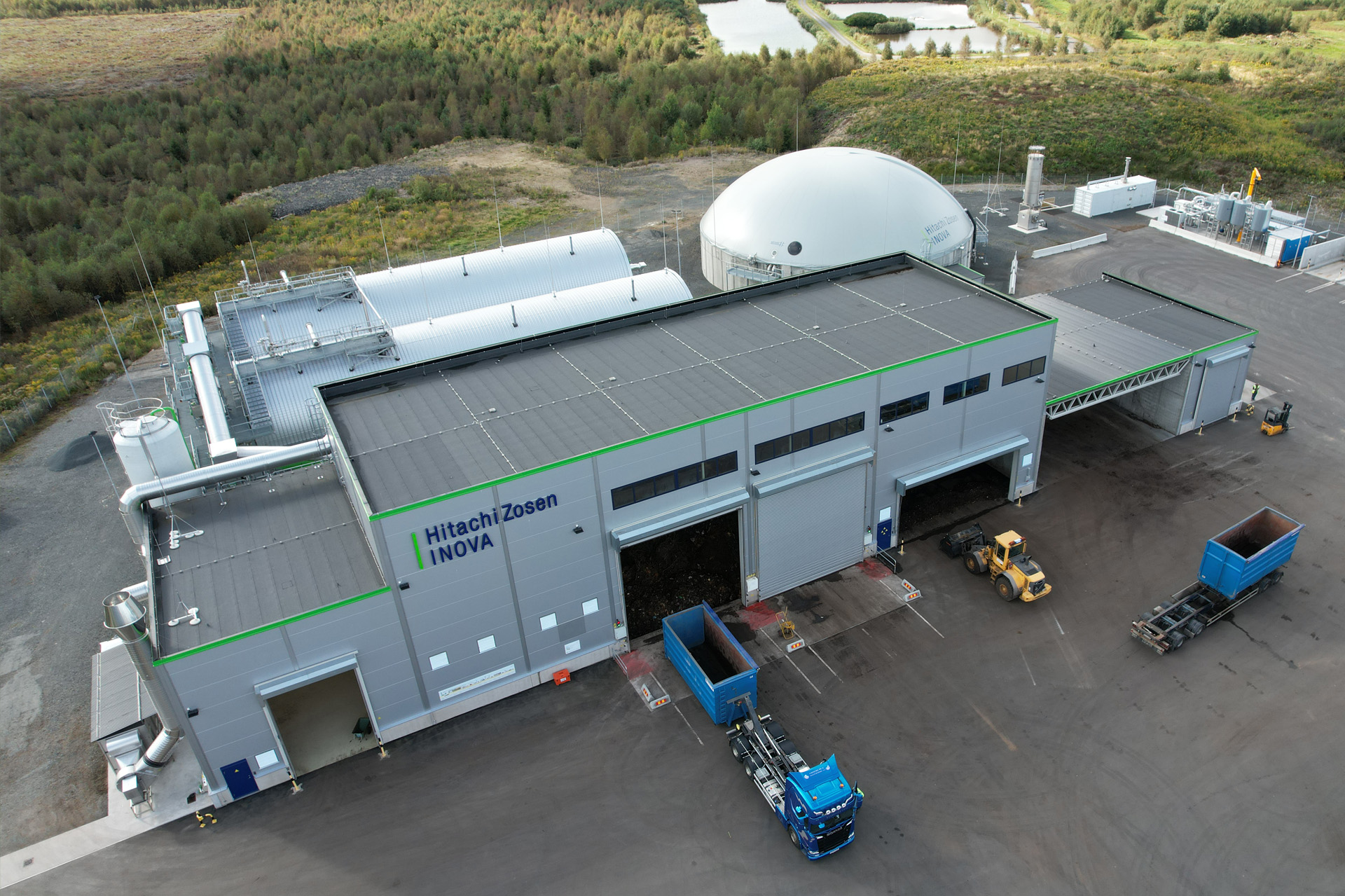
Municipality in Poland to Treat Organic Waste Using Dry Fermentation and Generate 3.5 Million kWh of Electrical Energy a Year
Starting in 2024, the new Kompogas® plant being built by Kanadevia Inova on behalf of the German company Eggersmann Anlagen Concept for the Wielkopolskie Centrum Recyklingu waste incineration plant in Jarocin will treat around 15,000 tonnes of household organic and green waste a year to produce renewable energy and fertiliser.
Jarocin, Poland. One of the goals of Poland’s new energy policy is to harness the potential of renewable energy more effectively. Added to this are increasingly stringent environmental requirements from the European Union (EU) obliging communities in its member states to source separate household waste. Among other things this has led to a considerable increase in the amount of organic waste. Poland still has only a modest number of waste treatment plants. One of them, operating in Jarocin, already has a Kompogas® licence from a third-party provider. The plant treats the organic fraction separated out from mixed municipal waste by technical means to produce biogas. Given the new need, the local operator, Wielkopolskie Centrum Recyklingu, has decided to also have an anaerobic fermentation plant built on the same site.
Proven Technology, Proven Partnership
The Kompogas® plant in Jarocin will be one of more than 100 installations worldwide using anaerobic fermentation technology to generate energy from renewable organic resources. Its plug-flow digester will be equipped with resilient agitators for the reliable treatment of a wide range of substrates with different compositions comprising organic and green waste, as well as the organic fraction of municipal solid waste. The plant is designed to process 15,000 tonnes of organic waste a year to produce biogas with a yield of over 95 percent. After a cleaning stage, this biogas is fed into a combined heat and power unit to generate electricity and useful heat; the electricity is fed into the public grid.
Rolf Liebeneiner, head of sales at Eggersmann Anlagenbau, comments as follows: “We’re delighted to have been entrusted with this project by the municipality of Jarocin. We’ll be delivering it as a general contractor in a consortium with Instal Warszawa S.A. Eggersmann and Kanadevia Inova have already developed a number of projects together and make a winning team. The extended plant will significantly boost our client’s performance in terms of resource management and energy generation.”
Stefano Boscolo, Director Sales Renewable Gas at Kanadevia Inova, explains: “Kompogas® dry fermentation technology is a particularly good match given the municipality of Jarocin’s goal of increasing the share of renewable energy. By recycling organic waste into materials and energy, the process closes the environmental cycle cost-efficiently.”
Phase one of the project, engineering and procurement, has commenced. On-site construction will take place at the end of 2022, and the new bio-recycling plant will go into full operation in early 2024.